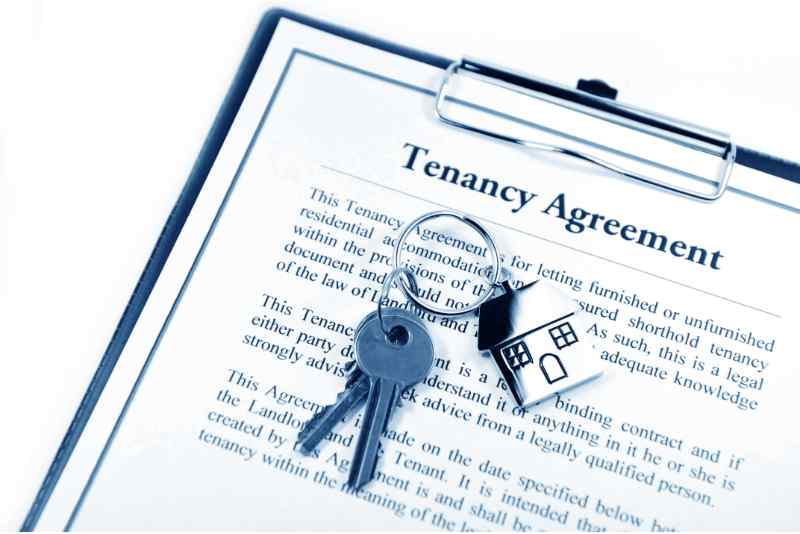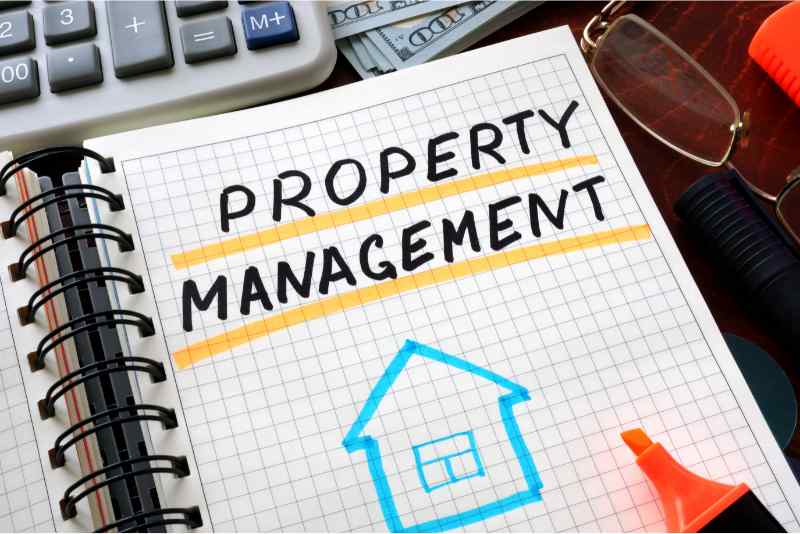

Did you know that property management fees in the UK can cost landlords up to 25% of annual rent? As an investor, understanding these charges is essential to accurately forecasting your rental income and overall ROI.
This guide provides a comprehensive overview of the fees you can expect from property managers in the UK, including current active charges as well as historical fees no longer collected. With over 9 common fees detailed, you’ll gain valuable insight into the types of costs deducted from your rental income and decide on whether to hire a property management company.
This section outlines the cost for property management in the UK.
Note that not all fees are collected by all agencies — for example, Redstone only charges 10% of the rental income, and you get a comprehensive property management service. An agency will typically list all service charges in their agreement form, so make sure to go through the fees before signing a deal. Also, ensure to ask questions to clarify which fees are included.
That said, here are 9 fees you can expect to pay based on our property management reviews:
Now, let’s consider what each fee is all about.
Early cancellation fees are charges paid by landlords if they want to terminate their contracts with property service companies early. In the UK, most standard property management agreements have an initial fixed term, typically 12 months. Should landlords wish to cancel before the end of this initial term, early cancellation fees will apply.
The exact amount depends on the specific terms in your management agreement. Some companies charge a flat fee, while others charge a percentage of the remaining contract fees. It is best to choose a property manager with reasonable exit clause terms to avoid hefty charges should you need to end the contract prematurely.
When interviewing potential property managers, inquire about:
To avoid confusion and conflict later on, ensure all terms regarding contract cancellation are clearly outlined in your written property management agreement before signing. Carefully reviewing the agreement and understanding all fees upfront can help prevent unexpected charges down the line.
Finding the best property managers is not all it takes to manage a new-build investment property; you must also understand the fees involved. Tenant sourcing fees, also known as letting fees, refer to the charges property managers charge for finding and vetting new tenants. This fee covers marketing and tenant vetting.

To attract prospective tenants, property managers advertise rental properties on websites like Rightmove, Zoopla and their website. They’ll also often use social media platforms and email marketing.
You typically don’t need to pay extra for this service. The 10% fee charged by Redstone, for example, will cover advertising costs. But expect to pay more if you want premium advertising (More on this later).
Thorough tenant vetting, including employment and previous landlord checks, is essential to finding good, reliable tenants. They’ll also need to conduct credit checks to provide insight into a tenant’s financial history and ability to pay rent. Agencies usually don’t have the complete infrastructure to conduct these checks, and unless otherwise indicated, they may charge extra to hire third-party companies for tenant vetting.
Except you’re using comprehensive real estate management companies like Redstone, be prepared to pay extra for viewing fees. Many low-cost property managers simply operate online and expect to show your property to every potential tenant while they administer the legal paperwork. In that case, they may offer property viewing as an optional service that you must pay for.
The fees compensate the agent for their time in showing the property to potential tenants. Some property managers charge a flat fee for a certain number of viewings, e.g. £500 for 10 viewings, while others charge per individual viewing.
To minimise viewing fees, landlords can opt to conduct viewings themselves if possible. However, it’s always better to use property management firms like Redstone, which offer a comprehensive package.
Premium adverts are additional paid listings property managers offer landlords to increase visibility and accelerate the rental process. For an added fee, your listing can be prominently featured at the top of search results on the agency’s website and property portals like Rightmove and Zoopla.
As an investor, paying for premium adverts may be worthwhile to reduce vacancy periods and ensure your property is let quickly. The more you pay, the higher your listing will appear in the search rankings. Some agencies also offer featured property listings, which include professional photos, a property video tour, and a more detailed listing description to help attract top-quality tenants.
Premium advert fees are an optional service offered by some agencies, and landlords are under no obligation to pay for additional listings if they would rather avoid the extra charges. However, for investors looking to maximise their rental income with minimal void periods, premium adverts may be a worthwhile investment.
The key is finding the right balance of paid advertising to suit your needs and budget. Your property manager can evaluate the pros and cons of your specific property and recommend the best approach.
Once a fixed-term tenancy reaches its end date, the tenancy will need to be renewed if the tenant wishes to continue renting the property. The property manager’s cost can include a small fee for completing the necessary paperwork to renew the tenancy agreement.
This typically includes:

The agency can either charge the landlord the fee or the tenant renting the property. The exact fee will depend on the manager and the services included. Landlords should check the manager’s fee schedule to determine the specific tenancy renewal charges that apply to their property before appointing them.
While tenancy renewal fees were banned in 2019 for new tenancies in England, they can still be charged for existing tenancies that began before June 1, 2019, or for properties outside of England. Landlords should keep the ban in mind, though, when negotiating with property managers, as it indicates a general direction towards more transparent fees in the rental sector.
When tenancy agreements need to be renewed, proactively discussing fee expectations with your manager can help avoid surprises and ensure maximum value.
As someone getting into UK property investment, one of the largest property management fees you’ll face is property maintenance fees. These are the necessary changes to keep your investment property in good working order and up to legal standards. Failure to properly maintain a property can lead to loss in value, legal issues, and potentially uninhabitable conditions for tenants.
These fees usually cover repairs and upkeep, grounds maintenance, inspections, and compliance.
The property manager will charge fees to handle any repairs or upkeep needed on the property. This includes tasks like fixing leaky faucets, repairing appliances, patching holes in walls, clearing clogged drains, and handling emergency repairs. The fees charged will depend on the type of work required and local rates for contractors and tradesmen; expect higher fees in more expensive areas of the country.
If the property includes outdoor space like a garden or yard, the property manager will charge for maintaining the grounds. This includes mowing lawns, raking leaves, weeding gardens, pruning shrubs, and clearing walkways. The specific fees will depend on the size of the outdoor space and the frequency of maintenance needed to keep the grounds looking tidy.
Most property managers will conduct regular inspections of the property, typically once a quarter or once a year. They charge inspection fees to enter the property, ensure everything is in working order, check for any needed repairs or maintenance, and verify the tenants are properly caring for the property. Inspection fees provide important oversight and help identify issues early before they become bigger, more expensive problems.
There are several regulations around property standards and safety in the UK. The property manager will charge fees to ensure the property remains compliant with all laws. This includes testing smoke/carbon monoxide detectors, handling required certifications, and making any necessary upgrades to meet changing compliance standards. Compliance fees help reduce liability risks for the property owner.
You may not task your property managers with all these duties. Now that you understand the various property maintenance fees charged, you can make an informed decision regarding which tasks you want to handle yourself and which you prefer to delegate to a professional property manager. However, their expertise and oversight provide important value, even if the fees seem high. Overall, keeping your investment property well-maintained is essential for continued success as a landlord.
Rental evictions saw a 98% increase in the past year in England and Wales, and this trend is expected to continue. Reports indicate that over 35,000 households in England will be evicted at the end of 2024 when the “no-fault” (section 21) eviction ban policy is instituted.
As a UK landlord, you must be aware of the potential fees associated with tenant eviction. Should you find yourself in a situation where a tenant needs to be removed from your building, property management firms may charge additional fees to handle the legal procedures. These fees often cover serving notices, court filings, court appearances, and enforcing eviction.

The first step in the eviction process is serving the tenant with the appropriate notice to vacate the premises. Your property manager will draft the necessary notice, such as a Section 21 or Section 8 notice, and arrange to have it properly served to the tenant by a court bailiff. Expect to pay £99 or more for this service.
Note: There are plans to place a ban on “no-fault” (section 21) evictions by January 2025 to give renters more peace of mind and curtail unnecessary tenant evictions.
If the tenant doesn’t vacate after the notice period, your property manager will need to file the appropriate court claims to pursue a court order for eviction. Plan on fees of £355 (standard) to £500 (agencies will want more for their troubles) to have the court claims drafted and filed on your behalf. The exact fees will depend on the agency you’re using.
In some eviction cases, one or more court appearances before a judge may be necessary. Your property manager will charge by the hour for appearing in court on your behalf. The total cost will depend on the complexity of your case and number of required appearances.
Once the court has issued an order for eviction, the tenant must be properly removed from the property. The property manager will coordinate with court bailiffs to carry out the physical eviction. Fees for enforcing an eviction order via a warrant and removing the tenant’s belongings typically cost upward of £130. Always remember that the agent will usually add a markup to the base cost for their time.
Evicting a tenant can be a complicated process, but by understanding the potential fees involved, you can budget properly and ensure any lost rental income is recovered. Your property manager should be transparent about their fees for handling evictions so you know what to expect in a worst-case scenario. With open communication and proper planning, navigating an eviction doesn’t have to be overly burdensome.
Rental guarantee fees are paid by landlords to real estate management companies to ensure their rent will be paid regardless of whether the tenant pays or not. Property managers charge a percentage of the total rent, typically 3.75% or more, to guarantee they’ll pay the rent for the duration of the tenancy agreement.
As an investor, rental guarantee fees provide peace of mind that your income is secure. Even if a tenant fails to pay rent, the property manager will pay the landlord the full amount due. The property manager then pursues the tenant to recover the funds. This transfers the risk from the landlord to the property manager.
However, there are some downsides to consider with rental guarantee fees, including:
While rental guarantee fees provide security of income, we advise against it as it can have adverse effects on the landlords. Ultimately, the payments are still coming from the landlord’s pocket in the form of the paid premium. So, it’s better to save your money and expect your agencies to do their due diligence to ensure consistent rent.
Ground rent fees are recurring payments made by leasehold property owners to the freeholder. These fees are mandatory for leasehold properties and aren’t applicable to freehold properties. They represent a nominal yearly rent paid for the use of the land on which the property is situated.
The cost of these fees depends on your agreement with the freeholder. We advise arranging a payment method or schedule with your freeholder to allow you to pay the fee yourself, regardless of your location. This way, you are cutting off middlemen (the agent) and saving the extra pound for yourself.
However, if the agent was in charge of the leasehold acquisition, then it’s just right that they’re in charge of the fee payment. This, of course, applies if there are no exceptions in the contract agreement.
So far, we’ve considered the current property management fees you can expect to pay in the UK. But there are more fees to note — these fees are now illegal or outdated, so watch out for any property manager who may be demanding them.

Here are 4 of the common fees that are rarely or never charged today:
Staying up-to-date on the types of fees property managers may charge will help ensure you have accurate financial projections for your real estate investments. While some costs are unavoidable, being aware of banned or eliminated fees can also help prevent overpaying for management services.
The typical property manager cost is 12% to 25% of the rental income. However, it’s important to note that fees can vary depending on the company you engage with, so you need to be sure of the services the fee covers. These costs can be as low as 10% when you partner with Redstone.
In the UK, management fees are typically paid by the landlord or property owner, not the tenant who is renting the property.
No, you cannot refuse to pay a management fee if you have agreed to it in a contract.
Having understood the various property management fees you can expect to encounter as a UK landlord, understand that not all property management companies in the UK charge these fees. Redstone, for example, charges only a 10% commission, and you’re certain of a comprehensive service that will ensure the best returns on your investments.
That said, as a property investor seeking a new way to generate income, Baron & Cabot offers excellent property investment opportunities in the UK. With our experience and expertise, you can build a property portfolio that helps generate passive income in the form of rental income and long-term capital gains — contact us now to learn more.